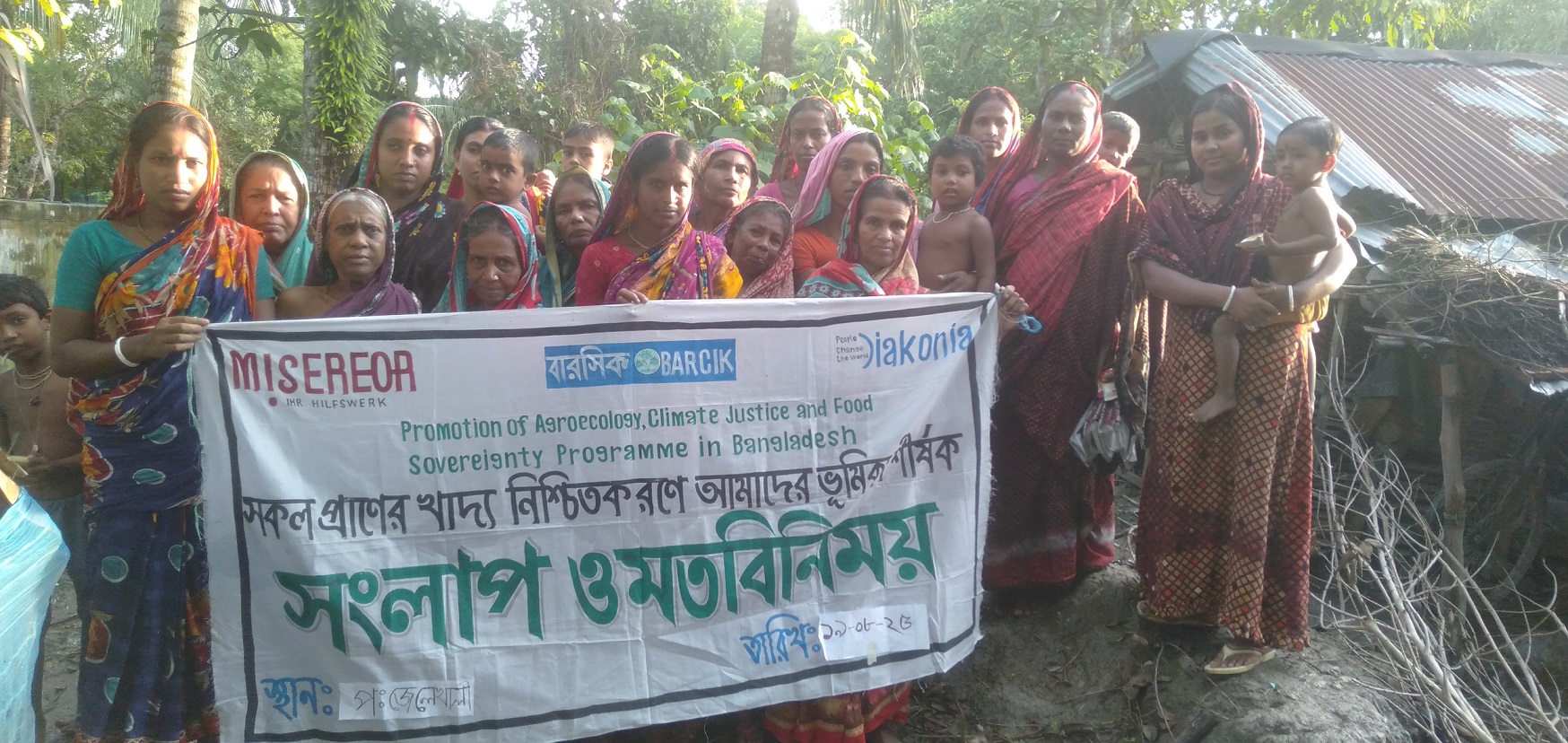By Biswajit Mondal from Shyamnagar, Satkhira
A sharing meeting titled “Our Role in Ensuring Food for All Creatures” was organized by Paschim Jelekhali Joba Krishi Nari Sangathan with facilitation support of BARCIK. Presided over by senior farmer Shibapada Majhi, a total of 26 participants including members of Shatbari Krishi Pratibesh Vidya Shikhon Kendra, students, and local farmers participated in the meeting.
The discussion focused on how to produce crops while protecting the environment, conserve biodiversity, and address challenges related to food security at the grassroots level.
Sharing her experience farmer Champa Majhi said, “We farmers produce food, but we face many challenges in doing so such as excessive heat, salinity, heavy rainfall, overuse of chemical fertilizers, pest infestations, and scarcity of indigenous seeds.”

She went on saying, “We produce food only to survive, but in the process we are destroying many living creatures of nature. Once, our area had plenty of snakes, earthworms, and snails, but due to the indiscriminate use of chemical fertilizers and pesticides, they have disappeared. We must think about the environment, because all creatures of nature are important.”
Farmers Sita, Bidyulata, Phalguni, and Dolly Naskar said, “In the past, local water bodies were abundant with native fish. We also used to collect diverse wild plants around our homes and from wetlands. During the rainy season, we would gather water lilies and aquatic plants like dheb to meet our family’s food needs. But due to rising salinity, decreasing farmland, and excessive pesticide use, this biodiversity is disappearing. It is essential to conserve them.”
Senior farmer Shibapada Majhi said, “I have been farming since childhood. I cultivate vegetables, pulses, spices, mustard, and rice. I also rear native ducks, chickens, cows, and goats, grow fruit trees, and farm native fish in my pond.’ ‘Most of this is done organically. I also collect and conserve native seeds. We must produce crops while sustaining all living beings in the environment” she added.
It is to be mentioned that in order to ensure food security, participants proposed several actions such as promoting organic farming through incentives, training on seed collection and preservation, awareness on the harmful effects of chemical inputs, re-excavation of canals and ponds, banning poisonous baits and current nets for fishing, and strengthening initiatives by government, NGOs, and local communities.
